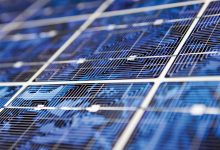A multi-country patent dispute involving four of the world’s largest solar panel manufacturers has delivered mixed results for complaints in recent court decisions delivered in the United States and Europe, as manufacturers attempt to protect market positions in an increasingly competitive global market.
Four of the world’s largest solar panel producers, Hanwha Q CELLs, JinkoSolar, REC Solar and LONGi Solar have been caught in an interlinked battle over alleged intellectual property infringements, as the companies tussle for market dominance.
Last year, Hanwha Q CELLS initiated initiated a patent dispute against the other three leading solar panel manufacturers, alleging the companies had infringed Hanwha Q CELLS’ passivation technology used in its Q.ANTUM brand of solar cells.
In a decision delivered in Thursday, a German court confirmed the allegations of patent infringement, with the court ruling that the three infringing companies were legally obliged to recall patent-infringing panels from distribution channels, and may be forced to destroy any such panels in the possession of JinkoSolar, REC Solar and LONGi Solar.
“Q CELLS stands proud of our legacy of innovation and leadership in the photovoltaic industry. We took these actions in good faith to protect our property rights and uphold industry confidence that time- and capital-intensive R&D efforts will be protected,” CEO of Q CELLS Dr Daniel Jeong said.
“Without enforcement of IP laws, the solar industry cannot meet the high expectations commercial customers have around the world of PV as an affordable, clean and – most of all – reliable source of energy.”
Q CELLS flagged that it may take further action against other products produced by the other manufacturers that it suspects also infringed the company’s patents.
“Also, we cannot ignore the possibility that the accused companies might have applied the ‘689 patent to their other products. Q CELLS will continue to take all necessary actions including direct litigations as well as industry dialogues, if and when our rights are violated by another party in other regions. With regards to the recent U.S. ITC decision on patent infringement complaint, Q CELLS will bring the case to the court and make an appeal,” Dr Jeong added.
However, in a decision of the United States International Trade Commission (ITC) handed down earlier in June, JinkoSolar, REC Solar and LONGi Solar were ruled not to have infringed a different patent relating to solar cell design.
“Since the ITC investigation began, we have believed that Hanwha Q-Cells’ accusations against us were without technical and legal merits. We are pleased to be vindicated by the Administrative Law Judge’ decision on summary determination earlier this year and the ITC’s affirmation of that decision now,” CEO of REC Group Steve O’Neil said.
“From the start, we have believed that the case brought by Hanwha was legally and technically meritless and a transparent attempt to disrupt innovation and slow our momentum,” CEO of JinkoSolar Kangping Chen added.
Early last year, a similar claim was lodged in the Australian Federal Court, by Hanwha Q CELLS, lodging the same accusations of infringement against its passivation technologies by JinkoSolar and LONGi Solar. A similar dispute has also been launched in Norway.
Adding to the mess of patent disputes, REC Solar is also pursuing its own patent infringement claim against Q CELLS, in the Chinese Suzhou IP Tribunal, for alleging that Q CELLS had infringed REC Solar intellectual property relating to split cell designs and junction box technology.
The dispute in the Chinese intellectual property court is still under consideration.
It’s a messy spat between some of the world’s leading solar panel manufacturers. JinkoSolar, Longi Solar and Hanwha Q-CELLS all rank amongst the world’s top ten solar panel manufacturers by output.
Intellectual property has long been a fraught area for solar panel manufacturers, with raging disputes between manufacturers, as well as between national governments, flaring up over the last decade. Battles have often raged between companies and research institutions that undertake research and development and companies that seek to take advantage of lax intellectual property right enforcement by co-opting innovations into their own products to maintain competitive market positions.







